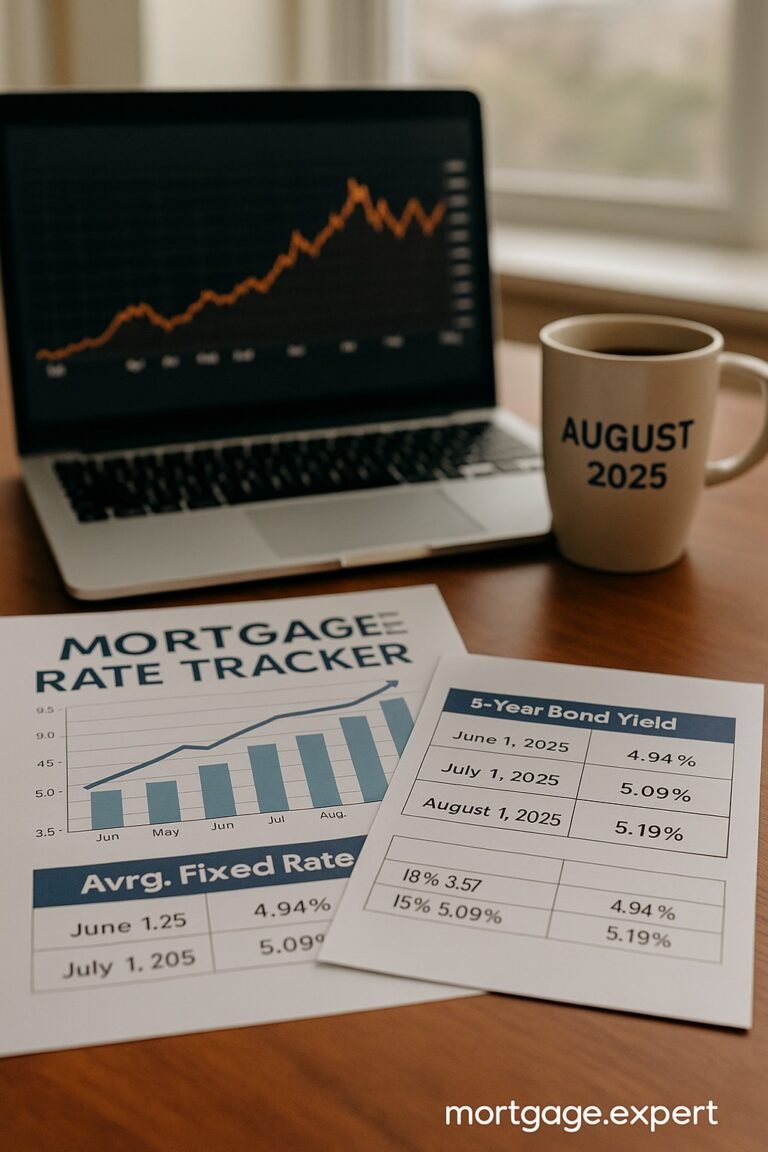
Mortgage Prepayment Privileges in Canada: Should You Pay Off Your Loan Faster?
When you sign on the dotted line for a mortgage, chances are you’re locking in a long-term commitment — often 25 to 30 years. But what if you could shave years off your loan and save thousands in interest? That’s exactly what mortgage prepayment privileges are designed for.
These built-in features let you make extra payments toward your mortgage balance without triggering penalties. If used wisely, prepayment privileges can help you achieve financial freedom faster — but they’re not always as simple as they sound.
In this guide, we’ll walk you through how prepayment privileges work in Canada, the pros and cons, real-world examples, and whether this strategy makes sense for your situation.
What Are Mortgage Prepayment Privileges?
Mortgage prepayment privileges are optional clauses in your mortgage contract that allow you to pay more than your regular monthly or biweekly payments — either by increasing your payment amount or by making lump-sum contributions.
These privileges are usually capped. For example, your lender may allow you to make lump-sum payments up to 10%, 15%, or even 20% of the original mortgage principal annually without any fees.
There are four common ways to use prepayment privileges:
- Lump-sum payments made directly to your principal
- Increasing your regular payment amount
- Making double-up payments (i.e., paying twice your regular installment)
- Switching to an accelerated payment frequency (biweekly or weekly instead of monthly)
Each of these methods helps bring down your balance faster, which means less interest and a shorter amortization period overall.
📌 Regular vs. Prepayment Mortgage Schedule Comparison
See how a small monthly prepayment can significantly reduce the total interest paid and shorten your mortgage term. Based on a $500,000 mortgage at 5% interest over 25 years.
Scenario Monthly Payment Total Interest Paid Mortgage Term 🏠 Regular Schedule $2,908 $372,535 25 years 🚀 With $200/mo Prepayment $3,108 $310,417 22 years 🔥 With $500/mo Prepayment $3,408 $265,982 20 years 💡 Tip: Even a small monthly prepayment goes directly toward your principal, reducing your interest costs and shaving years off your loan.
Why Prepayment Privileges Matter
Let’s be real — interest is what makes mortgages expensive. You could end up paying hundreds of thousands in interest over the life of a loan, especially in a high-rate environment.
Every extra dollar you apply to your mortgage principal reduces the amount of interest that accrues moving forward. In short: the earlier you start making extra payments, the more you save.
Plus, having prepayment options gives you flexibility. If you come into extra money — say a bonus at work, a tax refund, or an inheritance — you don’t need to wait until your mortgage is up for renewal to put that toward your loan.
The Upside: Pros of Prepayment Privileges
There’s a reason mortgage brokers and financial planners love prepayment privileges. Here’s what makes them so powerful:
1. You save thousands in interest
If you consistently make lump-sum payments or increase your regular payments, you’ll cut down both your interest costs and the time it takes to become mortgage-free.
2. You reduce your financial risk
By lowering your balance faster, you protect yourself against future interest rate hikes. The less you owe, the less impact rising rates will have on your wallet.
3. You free up cash flow sooner
Once your mortgage is paid off, your monthly income is yours to use however you like — retirement savings, travel, or investments.
4. You build equity faster
This can be useful if you ever need to refinance or take out a home equity line of credit (HELOC).
5. You stay in control
Prepayment privileges allow you to make strategic choices based on your financial situation — without being locked into a rigid payment schedule.
The Trade-Offs: Cons of Using Prepayment Privileges
1. Limits and conditions vary by lender
Some lenders only let you make lump-sum payments once a year, often on your mortgage anniversary date. Others are more flexible. Always check the fine print.
2. Going over the limit triggers penalties
If you exceed your annual prepayment limit, your lender may charge hefty fees — especially with fixed-rate mortgages, which use the interest rate differential (IRD) calculation.
3. Opportunity cost
By directing extra funds toward your mortgage, you may miss out on potentially higher returns from investing in RRSPs, TFSAs, or the stock market.
4. Liquidity risk
Once that money is in your home, it’s not easy to access. In emergencies, refinancing can be more expensive than expected — especially if your mortgage has a closed term.
📌 Prepayment Privilege Do’s and Don’ts
Using your prepayment privileges wisely can save you thousands in interest — but doing it wrong can trigger penalties. Here’s a quick visual guide to keep you on the right track.
✅ Do’s
- Use lump sum payments when you get bonuses or tax refunds
- Make extra monthly or bi-weekly payments within your annual limit
- Double up payments (if allowed) to reduce principal faster
- Check your prepayment allowance (usually 10–20% of original balance annually)
- Track how much prepayment room you’ve used each year
❌ Don’ts
- Don’t exceed your prepayment limit — you’ll pay a penalty
- Don’t assume all lenders offer the same privileges
- Don’t wait until late in your term to make extra payments
- Don’t confuse prepayment options with regular payment changes
- Don’t forget to confirm prepayment rules during renewal or refinance
💡 Smart Move: Prepaying early in your term saves more in interest than doing it later — the sooner, the better!
Before You Prepay: What to Review
Here’s what you should look for before committing to any extra payments:
- Your annual prepayment allowance: Usually 10% to 20% of your original mortgage principal.
- Timing restrictions: Can you prepay anytime, or only once a year?
- Penalty triggers: What happens if you accidentally go over the limit?
- Long-term goals: Do you have other higher-interest debts or more urgent savings needs?
A mortgage with generous prepayment privileges is more valuable than one that restricts your options. It’s also a sign your lender offers borrower-friendly flexibility.
Real-Life Prepayment Scenarios
Let’s put this into numbers. Say you have a $500,000 mortgage at 5.29% with 25 years remaining. Your monthly payment is around $2,991. Here’s what different prepayment strategies could do for you:
Example 1: $50,000 Lump-Sum Prepayment
You get a bonus or inheritance and put $50,000 toward your mortgage.
- New balance drops to $429,500
- You shave off over 4 years from your term
- You save around $106,000 in interest
Example 2: $1,000 Monthly Increase in Payments
You get a salary bump and decide to put an extra $1,000/month toward your mortgage.
- Your new monthly payment is $3,991
- You cut your amortization by over 9 years
- You save approximately $159,500 in interest
Example 3: Switch to Accelerated Biweekly Payments
You switch from $2,991 monthly to $1,495 biweekly accelerated payments.
- You make 26 payments per year instead of 12
- You shave off nearly 4 years
- You save about $67,000 in interest
📊 Interest Saved with Different Prepayment Strategies
Want to save thousands on your mortgage? Compare how different prepayment options stack up. Based on a $500,000 mortgage at 5% interest over 25 years.
🏠 No Prepayment
Extra Monthly Payment: $0
Years Saved: 0
Interest Saved: —📈 $100/month
Extra Monthly Payment: $100
Years Saved: 2 years
Interest Saved: $27,900💡 $250/month
Extra Monthly Payment: $250
Years Saved: 4.5 years
Interest Saved: $58,300🔥 $500/month
Extra Monthly Payment: $500
Years Saved: 7.2 years
Interest Saved: $91,700💰 Annual Lump Sum of $5,000
Extra Monthly Payment: —
Years Saved: 9.5 years
Interest Saved: $112,800💡 Tip: Even small prepayments go a long way — they reduce principal faster and compound savings over time.
FAQs About Mortgage Prepayments
What’s a prepayment penalty?
It’s a fee charged if you exceed your allowable prepayment limit or break your mortgage before the term ends. For fixed-rate mortgages, it’s usually the greater of three months’ interest or the interest rate differential (IRD). For variable rates, it’s often just three months’ interest.
Can I prepay on any type of mortgage?
Most closed mortgages offer prepayment privileges, but open mortgages let you prepay as much as you want at any time — in exchange for a higher interest rate.
Is it better to invest or pay down my mortgage?
That depends on your risk tolerance and goals. If your mortgage rate is 5% and you can earn more than that consistently through investing, then investing might be better. But paying down debt offers guaranteed savings and peace of mind.
Final Verdict: Is Prepaying Your Mortgage Worth It?
If you’ve got room in your budget and your other financial bases are covered, prepayment privileges can be an incredibly smart tool. You’ll pay off your mortgage faster, save thousands in interest, and reduce your financial stress.
But don’t rush into it blindly. Make sure it fits within your long-term goals, your contract allows it without penalties, and you’re not sacrificing emergency savings or retirement planning to make it happen.
When in doubt, talk to a mortgage expert who can help you make the best decision based on your specific circumstances.
Thinking About Paying Off Your Mortgage Early?
Prepayment privileges can shave years off your loan and save you thousands — but only if you use them wisely. Learn how to avoid penalties and maximize your mortgage freedom.
Explore Prepayment Strategies Now
Stuck with a Mortgage Decision?
Don’t stress — our team is here to help. Reach out for free, no-obligation guidance.
Contact the Experts



